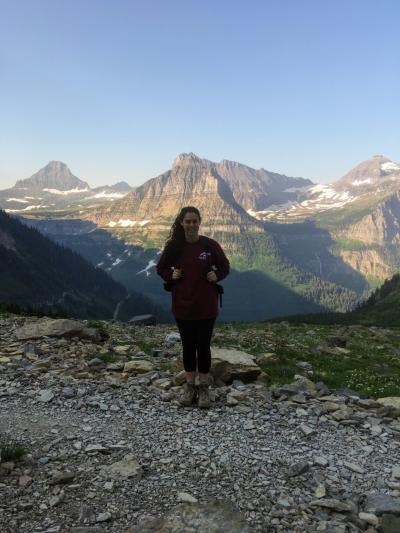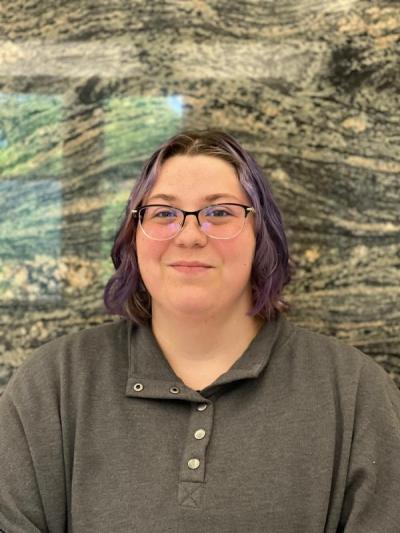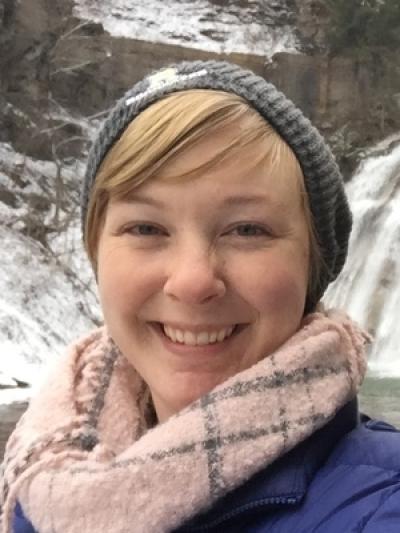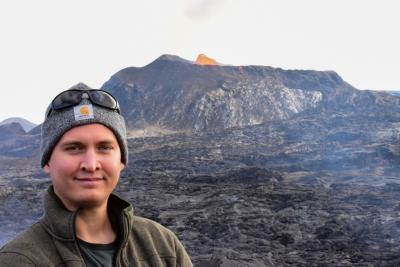Alumni Change Lives
Thanks to the Friends of Orton Hall fund, students have been able pursue academic achievement, attend conferences, pursue research and more! Scroll below to read how the Friends of Orton Hall fund helped these students out:
Kara Lamantia
The Friends of Orton Fall Fund was generous enough to provide me with funds to attend the American Geophysical Union Conference, held in Chicago, Illinois of December, 2022. Because of the money I received I was able to attend the conference for the full week and engage other scientists in discussions about my research and theirs and collect new ideas, as well as gain other information for additional projects I am working on. During my poster session, I was approached by a number of scientists in my field and was able to connect with a few of them in order to collaborate in the future, collaborations which will hopefully lead to another publication regarding the project I was presenting. I appreciate FOH allowing me the ability to travel and further immerse myself into my field of study.

Megan O'Quin
My name is Megan O’Quin and I’m a first-year graduate student here in SES. My work focuses on invertebrate paleontology and conservation paleobiology in Caribbean coral reef environments from the past 800 years. Particularly looking at the mollusks and echinoderms to reconstruct ecological change over time. Getting this FOH grant allowed me to fly to Portland for the annual GSA Connects conference this year. There, I presented research I worked on during my undergraduate program, and that I’m continuing to work on in the beginning of my master's program. I would not have been able to have this experience without the Friends of Orton Hall, so I thank you all!

Alison Chartrand
WAIS:
In September 2022, I had the chance to attend my favorite conference, the West Antarctic Ice Sheet (WAIS) Workshop, in Estes Park, CO, thanks in large part to Friends of Orton Hall. I love this conference because it is very early-career and student-focused, and the presentations and discussions are all centered around the West Antarctic Ice Sheet, which is the region I have dedicated my PhD studies to understanding better. This year, I presented on a small, but impactful project about the ice shelves in West Antarctica. In my work, I compare contemporaneous ice thickness measurements and ice thickness estimates derived from surface height data to investigate how well our assumptions about floating ice shelves hold up. I find that on small scales (10 km or fewer), ice thickness measurements and ice thickness estimates do not match well, leading to uncertainties in other derived quantities, such as ice shelf mass loss. I received great feedback from my friends and colleagues at WAIS, and I plan to publish the results of this project soon!
AGU:
In December 2022, I attended my fifth American Geophysical Union conference in Chicago, IL. I was so excited to be back in the city where I spent much of my undergraduate career at Northwestern University, and thanks to Friends of Orton Hall I was able to return as a representative of the Ohio State University! This year, I presented some very recent work investigating grounding line change at Thwaites Glacier (aka the Doomsday Glacier) using the ultra-high resolution Reference Elevation Model of Antarctica (REMA) 2-meter Digital Elevation Models (DEMs). This work is part of a recently funded NSF grant in the Glacier Dynamics Research Group to investigate change in Antarctica using the REMA DEMs. My work showed that we can resolve grounding line change with the DEMs, and that the Thwaites Glacier grounding line is retreating in some regions and remaining stable in others. Presenting at AGU this year was also a great way to network with potential postdoctoral advisors, since I am beginning to wrap up my PhD studies here in SES.

Ken Peterman
My name is Ken Peterman and I am a PhD student researching igneous petrology with Dr. Michael Barton. The goal of my dissertation research is to establish a novel method to accurately characterize the redox state of magmas (whether magmas are relatively reduced or oxidized). Knowledge of the magma redox state and the exchange of oxygen between earth’s interior and surface is crucial for understanding many geological processes. Specific elements in magmas, notably iron, exist in multiple oxidation states. This influences their geochemical behavior and determines the minerals that crystallize from magma. In principle, it is possible to determine the redox state of lavas from the composition of a ferromagnesian silicate mineral (olivine) in equilibrium with the melt (represented by volcanic glass). A key objective of this research is to obtain accurate chemical analyses of olivine crystals and glass in samples of lava collected from Iceland, and to utilize olivine-melt equilibrium to determine magma redox states.
In the fall semester of 2022, I received funds from Friends of Orton Hall to travel to The American Geophysical Union Fall Meeting in Chicago. Here, I presented the results obtained from analyses of lavas that I collected from the 2021 Fagradalsfjall eruption in Iceland. I would like to thank Friends of Orton Hall and its donors for making it possible to present my research to the scientific community at the American Geophysical Union.

